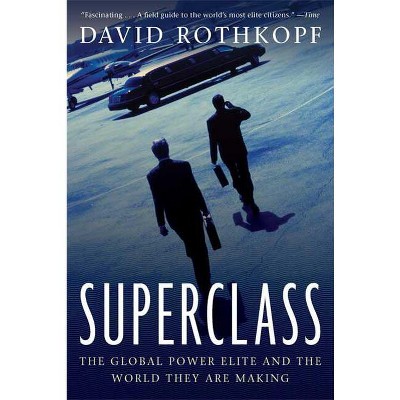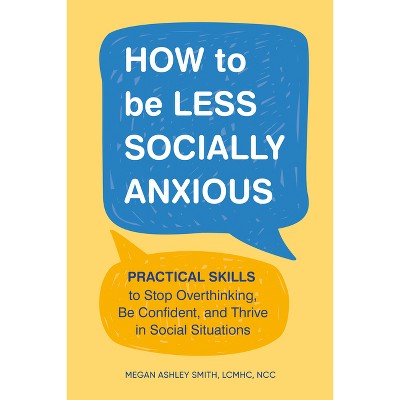Sponsored

Settling for Less - by Lachlan McNamee (Paperback)
$28.38Save $6.62 (19% off)
In Stock
Eligible for registries and wish lists
Sponsored
About this item
Highlights
- Why countries colonize the lands of indigenous people Over the past few centuries, vast areas of the world have been violently colonized by settlers.
- About the Author: Lachlan McNamee is assistant professor of political science at the University of California, Los Angeles.
- 256 Pages
- Political Science, Colonialism & Post-Colonialism
Description
About the Book
"Over the past few centuries, vast areas of the world have been violently colonized by settlers. But why did states like Australia and the United States stop settling frontier lands during the twentieth century? At the same time, why did states loudly committed to decolonization like Indonesia and China start settling the lands of such minorities as the West Papuans and Uyghurs? Settling for Less traces this bewildering historical reversal, explaining when and why indigenous peoples suffer displacement at the hands of settlers. Lachlan McNamee challenges the notion that settler colonialism can be explained by economics or racial ideologies. He tells a more complex story about state building and the conflicts of interest between indigenous peoples, states, and settlers. Drawing from a rich array of historical evidence, McNamee shows that states generally colonize frontier areas in response to security concerns. Elite schemes to populate contested frontiers with loyal settlers, however, often fail. As societies grow wealthier and cities increasingly become magnets for migration, states ultimately lose the power to settle frontier lands. Settling for Less uncovers the internal dynamics of settler colonialism and the diminishing power of colonizers in a rapidly urbanizing world. Contrasting successful and failed colonization projects in Australia, Indonesia, China, and beyond, this book demonstrates that economic development-by thwarting colonization-has proven a powerful force for indigenous self-determination"--Book Synopsis
Why countries colonize the lands of indigenous people
Over the past few centuries, vast areas of the world have been violently colonized by settlers. But why did states like Australia and the United States stop settling frontier lands during the twentieth century? At the same time, why did states loudly committed to decolonization like Indonesia and China start settling the lands of such minorities as the West Papuans and Uyghurs? Settling for Less traces this bewildering historical reversal, explaining when and why indigenous peoples suffer displacement at the hands of settlers. Lachlan McNamee challenges the notion that settler colonialism can be explained by economics or racial ideologies. He tells a more complex story about state building and the conflicts of interest between indigenous peoples, states, and settlers. Drawing from a rich array of historical evidence, McNamee shows that states generally colonize frontier areas in response to security concerns. Elite schemes to populate contested frontiers with loyal settlers, however, often fail. As societies grow wealthier and cities increasingly become magnets for migration, states ultimately lose the power to settle frontier lands. Settling for Less uncovers the internal dynamics of settler colonialism and the diminishing power of colonizers in a rapidly urbanizing world. Contrasting successful and failed colonization projects in Australia, Indonesia, China, and beyond, this book demonstrates that economic development--by thwarting colonization--has proven a powerful force for indigenous self-determination.Review Quotes
"Settling for Less delivers a solid analytic punch. Among its strengths is the moves beyond dominant interpretive paradigms in settler colonial studies, particularly the logic of elimination. . . . What he shows is that colonization schemes can fail or never get off the ground. By taking these negative cases seriously, we expose the demographic and fiscal constraints on colonizing power."---Richard Solomon, Spectre
"Winner of the President's Book Award, Social Science History Association"
"Winner of the Hedley Bull Prize, European Consortium for Political Research"
"Winner of the Best Book Award, Migration and Citizenship Section of the American Political Science Association"
"McNamee asks big questions, constructs an original and provocative theory, unearths previously unused, indeed, unknown data, and compiles persuasive evidence to support his hypotheses . . . Settling for Less is an extraordinary first book of the sort to which authors aspire."---David A. Lake, Political Science Quarterly
"McNamee's book is mandatory reading for scholars interested in both the causes and consequences of colonization. . . . Charles Tilly once warned us not to crow too loudly about the death of empires. But Lachlan McNamee's excellent, accessible, and well-written book has given us reason to crow. Slowly but surely, the structural force of modernization works against the strategic goals of empire."---Jacob Gerner, Perspectives on Politics
"Prodigious research and presentation."-- "Choice"
"Modern and multidisciplinary. . . . Settling for Less provides the most comprehensive analysis of settler colonialism."---Kyosuke Kikuta, The Developing Economies
About the Author
Lachlan McNamee is assistant professor of political science at the University of California, Los Angeles.Dimensions (Overall): 9.1 Inches (H) x 6.1 Inches (W) x .7 Inches (D)
Weight: .66 Pounds
Suggested Age: 22 Years and Up
Number of Pages: 256
Genre: Political Science
Sub-Genre: Colonialism & Post-Colonialism
Publisher: Princeton University Press
Format: Paperback
Author: Lachlan McNamee
Language: English
Street Date: January 17, 2023
TCIN: 86046038
UPC: 9780691237817
Item Number (DPCI): 247-23-2442
Origin: Made in the USA or Imported
If the item details aren’t accurate or complete, we want to know about it.
Shipping details
Estimated ship dimensions: 0.7 inches length x 6.1 inches width x 9.1 inches height
Estimated ship weight: 0.66 pounds
We regret that this item cannot be shipped to PO Boxes.
This item cannot be shipped to the following locations: American Samoa (see also separate entry under AS), Guam (see also separate entry under GU), Northern Mariana Islands, Puerto Rico (see also separate entry under PR), United States Minor Outlying Islands, Virgin Islands, U.S., APO/FPO
Return details
This item can be returned to any Target store or Target.com.
This item must be returned within 90 days of the date it was purchased in store, shipped, delivered by a Shipt shopper, or made ready for pickup.
See the return policy for complete information.
Trending Non-Fiction

$19.31
was $20.98 New lower price
4 out of 5 stars with 59 ratings
















